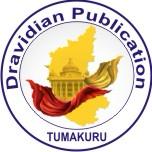Exploringthe Advantages and Disadvantages of Mobile Banking Adoption(Padmanjali K and R Selvi)
Exploringthe Advantages and Disadvantages of Mobile Banking Adoption Volume No.1 (2025) / Issue No.1 (March) / 5/Page(43-49) Author Name : Padmanjali K and R Selvi In the Indian banking industry, automation has continuously been a major force behind change, especially in the areas of operations, procedures, services, and structure. The awareness, use, and salient characteristics of mobile banking among people in the Davanagere District are the main subjects of this study. It provides a thorough analysis of the benefits and drawbacks of mobile banking in order to determine which characteristics are most important in differentiating users from non-users. The study also intends to investigate the significance of mobile banking services and assess their advantages and disadvantages. Books, research papers, articles, and online platforms are the primary sources of secondary data used in this study. Keywords: Mobile Banking, Financial Services, ATM’s, Digital Banking, Telecommunication, Devices DOI : https://jcrs.dravidianpublication.com/ Read More Or Download Now

